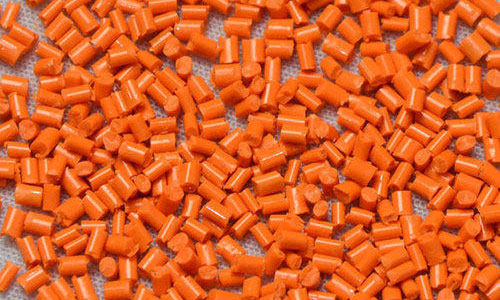

| Classification | Information | |
|---|---|---|
| Color | red | |
| Brand | PSP | |
| Usage/Application | PLASTIC PARTS | |
| Material | GRANELS | |
| Packaging Size | 25 KGS BAG | |
| Packaging Type | BAG | |
| Usage | PLASTIC HOUSE HOLD PRODUCTS | |
| Melt Flow Rate | 35 | |
| Tensile Strength | 46 | |
| Thickness | 5-15 MM | |
Acrylonitrile butadiene styrene is a common thermoplastic polymer. Its glass transition temperature is approximately 105 °C. ABS is amorphous and therefore has no true melting point. ABS is a terpolymer made by polymerizing styrene and acrylonitrile in the presence of polybutadiene. ABS, or Acrylonitrile Butadiene Styrene, is a thermoplastic polymer that finds extensive use in various industries. It is commonly employed in automotive parts, toys, electronics, and household appliances.
One of the key advantages of ABS is its exceptional impact resistance, making it suitable for applications that demand toughness and durability. Furthermore, ABS demonstrates excellent thermal stability, enabling it to retain its shape and properties across a wide range of temperatures. Additionally, ABS exhibits favorable electrical insulation properties, making it well-suited for electronic applications.
ABS is also highly processable and can be effortlessly molded into various forms and sizes, making it a preferred choice for injection molding. It can be easily colored and finished with a diverse range of coatings and textures.
In conclusion, ABS is a versatile and widely utilized material that possesses numerous beneficial properties, particularly in applications that require excellent impact resistance and toughness.
